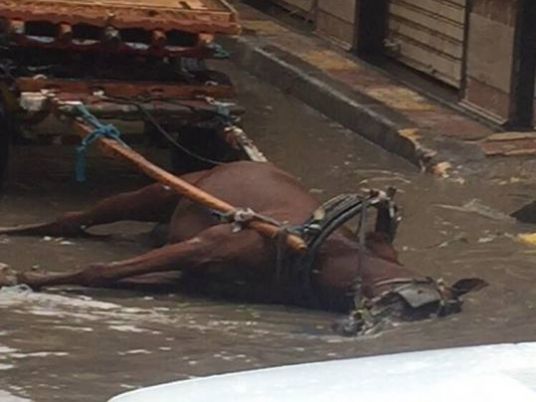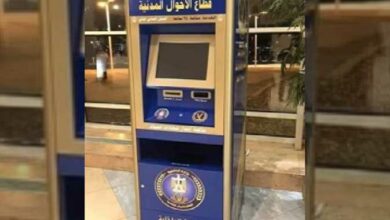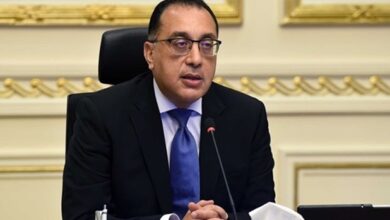The High Elections Commission is an independent, neutral body capable of performing its functions, according to Egyptian government officials and high ranking members of the National Democratic Party (NDP). An analysis of the commission’s actual composition and behavior reveals, however, that it is not independent, functions only intermittently, and has limited legal authorities, funding, and manpower. Its main function is to announce the results of an electoral process that it lacks the means to manage or supervise.
Meanwhile, there is a wide-ranging, no-holds-barred regime campaign to repress the supporters of certain opposition candidates, alongside an unprecedented level of intimidation of the media, civil society, and human rights groups attempting to monitor the electoral process. The commission is powerless to utter a single word about these developments, which will have a profound effect on the elections’ freeness and fairness.
Composition of the Commission
An amendment to Article 88 of the Egyptian Constitution in March 2007 transferred parliamentary election oversight from the judiciary to “an independent, neutral commission.” This body includes two commissioners by virtue of their positions: the heads of the appeals courts in Cairo (who chairs the commission) and in Alexandria. Also on the panel are two other judges chosen by the Supreme Court and the State Council, as well as seven members (three former judges and four public figures) selected by the People’s Assembly and the Shura Council. Because the NDP has an overwhelming majority in both houses of parliament, the ruling party effectively chooses 7 out of 11 commissioners. These seven serve three-year terms, whereas the chairman and the three other active judges serve much shorter terms; by virtue of their seniority they tend to be close to mandatory retirement age.
This rapid turnover in the commission’s leadership has seriously impeded its competence; current chairman al-Sayyid Abdul Aziz Omar assumed his position only eight weeks before the elections and is the third chairman in one year. Whatever limited institutional memory does exist within the electoral commission resides in its NDP-appointed members and permanent staff: six Ministry of Justice employees and one from the Ministry of Interior.
The electoral commission is entrusted, in theory, with a wide range of tasks including determining the polling stations and vote-counting centers, laying down the rules for preparing voter lists (although the Ministry of Interior actually prepares the lists), making proposals for electoral district boundaries (however the Ministry of Interior actually sets the districts), and setting the rules regulating campaigning (but the commission cannot stop the Ministry of Information from imposing its own rules on the media). The law also states that the electoral commission “receives and investigates the veracity of reports and complaints” and “contributes to election awareness and education efforts.” The commission, however, has neither the human nor the financial resources to undertake these tasks with such a tiny permanent staff, which are supplemented by tens of thousands of state bureaucrats on temporary loan only during elections.
Given these limitations, the electoral commission has been unable to implement some of the decisions it has issued recently. The commission announced that campaigning could not start before 15 November, for example, but was unable to stop several serving ministers and other candidates from campaigning openly well before that date. The electoral commission also capped campaign spending at 200,000 Egyptian pounds (US$35,000), but some candidates had passed that limit even before campaigning officially started. Places of worship are supposedly off-limits for campaigning, but several top NDP candidates have been disregarding this rule, even as the electoral commission berates Muslim Brotherhood candidates for campaigning under the slogan “Islam is the solution.” Furthermore, the electoral commission seems to have relinquished to the security forces its power to enforce the conditions it had set for accepting thousands of observers from local human rights organizations.
Role of the Ministry of Interior
Besides preparing the voter lists and drawing the electoral district boundaries, the Ministry of Interior also registers candidates, issues regulations for the exercise of political rights, and oversees a quarter of a million employees working in polling places and vote-counting centers.
According to reports by human rights groups, the Ministry of Interior effectively dominated the process of registering candidates and denied dozens of nomination requests–many from the Muslim Brotherhood–without any stated justification. Some of the rejected candidates promptly complained to the administrative court, winning rulings in their favor, but so far the Ministry of Interior has refused to carry out the rulings, circumventing them with appeals to other courts. This has been a common delaying tactic, used to ensure that the limited time available (only a few weeks between candidate registration and the elections) runs out. It has been particularly effective this year considering that the administrative court issued many rulings on the eve of the five-day Eid al-Adha holiday.
A struggle is now shaping up between the commission and the ministry on this issue, as the commission announced on 18 November that it would implement administrative court rulings in favor of several candidates, including some who had broken off from the NDP. So far it is not clear whether the rulings will be implemented.
The Electoral Commission Chairman
According to the assessments of a number of prominent judges defending judicial independence (and who played a groundbreaking role in previous struggles for free and fair elections), electoral commission chairman al-Sayyid Abdul Aziz Omar is an independent, honest judge who realizes what his job entails–to market results for which the commission cannot bear responsibility–and what it does not entail–intervening in the election process itself. For this reason, during the two interviews Omar has given to the press, with al-Wafd and al-Shurouq, he seemed to be trying to clear his conscience early on.
The chairman during these interviews acknowledged that the commission cannot possibly play a vital role, “as it is the Ministry of Interior that prepares the voter rolls and sets the polling centers” and “the Ministry of Justice that prepares the list of judges who will head the general commissions.” Omar indicated that he could not promise that the elections would be fair, as this “depends on the government’s intentions”–meaning that if the government has bad intentions, the electoral commission’s hands are tied. Omar also expressed his regret that he was incapable of forcing the ministers to take down their own campaign posters that were put up before the official start of the campaign season, and that he had no alternative to government bureaucrats in staffing the electoral commission.
Perhaps nothing better embodies the electoral commission’s sad state than its Chairman Omar’s description of his feelings during the two interviews: impotence, grief, regret, and anguish. In a decision that perhaps was not surprising, the electoral commission moved in its first meeting after the interviews were published to appoint a senior Ministry of Justice employee as its spokesperson.
Bahey Eldin Hassan is director of the Cairo Institute for Human Rights Studies. Paul Wulfsberg translated this article from Arabic. This article is published courtesy of the Arab Reform Bulletin.




